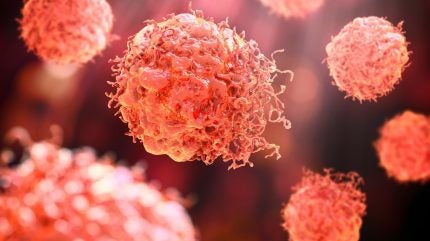
Eisai has announced the termination of its worldwide strategic collaboration with Bristol Myers Squibb to jointly develop and commercialise the antibody-drug conjugate (ADC), farletuzumab ecteribulin (FZEC).
Previously known as MORAb-202, FZEC is a folate receptor alpha (FRα)-targeting ADC.

Discover B2B Marketing That Performs
Combine business intelligence and editorial excellence to reach engaged professionals across 36 leading media platforms.
The decision follows Bristol Myers Squibb’s ongoing efforts to prioritise its portfolio.
In 2021, the companies signed an exclusive global strategic partnership agreement to jointly develop and market MORAb-202.
Eisai will now hold complete rights to FZEC and independently handle the worldwide development and commercialisation of the ADC.
The approach is aimed at expediting the ADC’s availability to cancer patients.

US Tariffs are shifting - will you react or anticipate?
Don’t let policy changes catch you off guard. Stay proactive with real-time data and expert analysis.
By GlobalDataEisai will refund a portion of the unused $200m payment provided by Bristol Myers Squibb to execute the research and development.
The remaining amount will be recorded as other income.
FZEC combines Eisai’s humanised IgG1 monoclonal antibody farletuzumab with the anticancer agent eribulin through an enzymatically cleavable linker.
Upon entering FRα-positive cancer cells, FZEC is designed to release eribulin, leading to antitumour activity.
Pre-clinical studies have shown that FZEC may also affect nearby FRα-negative cancer cells and components of the tumour microenvironment, a phenomenon known as the bystander effect.
The asset is being analysed in three clinical trials: Eisai’s Phase I/II trial for solid tumours, and Bristol Myers Squibb’s Phase II trials for peritoneal, ovarian and fallopian tube cancers, and for non-small cell lung cancer.
Eisai deems oncology a critical franchise area and is committed to the pursuit of cancer cures by exploring human biology.




